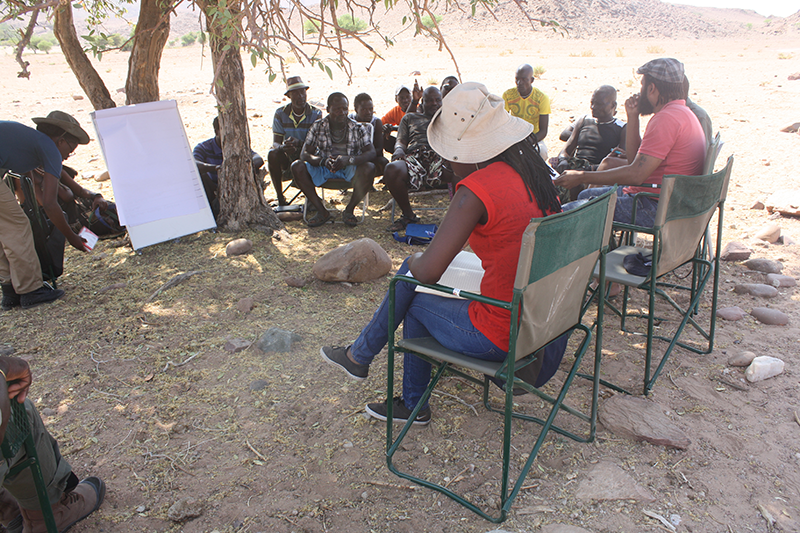The Assessment of Natural Resources Monitoring Tools in selected Namibian National parks and Communal conservancies
Date: July to December 2018
Long-term natural resources monitoring is an integral part of effective conservation as it provides valuable information to managers to implement important decisions such as adaptive management. In Namibia, Communal conservancies and National Parks have been involved in long-term monitoring of natural resources using various tools. Since the implementation of these monitoring tools, there is no study conducted to evaluate their effectiveness, hence this study was initiated to investigate the effectiveness of selected tools and/or systems such as the Event Book System, Fixed foot patrol and Annual game counts. Questionnaires were used to evaluate the effectiveness of the selected monitoring tools and/or systems. The effectiveness of the selected monitoring tools and / or system was carried out using six criteria, namely: 1) Methodology rigour 2) Compatibility with existing day-to-day activities 3) Efficiency of intervention 4) Repeatability 5) Cost Effectiveness and 6) Completeness. Respondents were asked to rank each criterion on a scale of 1 to 10 (1 strongly disagree and 10 strongly agree). A total of 37 questionnaires were administered to the following stakeholders: CBNRM Regional staff, CBNRM MET headquarters staff, National parks wardens, National parks rangers (Skeleton Coast), Community game guards (Marienfluss and Orupembe) and NGOs such as NACSO, IRDNC, WWF and Save the Rhino Trust. Questionnaires for community game guards and park rangers were to understand the implementation of the current natural resources monitoring tools in their conservancies and parks; including challenges and how collected information is shared with other stakeholders.
Our results reveal that the Event Book System was found to have the highest mean effective score (8.17 out of a maximum of 10), followed by the Fixed foot patrol (7.78), and lastly the Annual game count (7.68). Further analysis revealed that there was a significant difference in the effectiveness score of the Event Book System and the Annual game count, but no other monitoring tools were significantly different in terms of their effectiveness scores. Annual game counts scored low, particularly on two of the six criteria that were used to assess effectiveness. These two criteria were ‘’cost effectiveness’’ and ‘’compatibility with day-to-day activities’’. Lack of transport and insufficient resources to undertake monitoring activities were mentioned by most respondents (100% and 93%, respectively) as the main factors preventing the implementation of monitoring tool and/or systems. It was found that literacy levels are very low among game guards in Marienfluss and Orupembe conservancies, including rangers in Skeleton Coast park. Community game guards and park rangers tend to memorise events and look for people who know how to read and write to record the incidents in the books on their behalf. This raises questions of accuracy of the monitoring data as important details could easily be forgotten. Therefore, the Event Book and Incident Book need to be translated into local languages to accommodate users who do not speak and write English. There is a need for regular inspection by senior staff members that are responsible for parks to ensure full implementation of the monitoring tools, as the Incident Book System is not implemented in some parks at all.
Author(s): Frieda Shikongo & Meed Mbidzo

